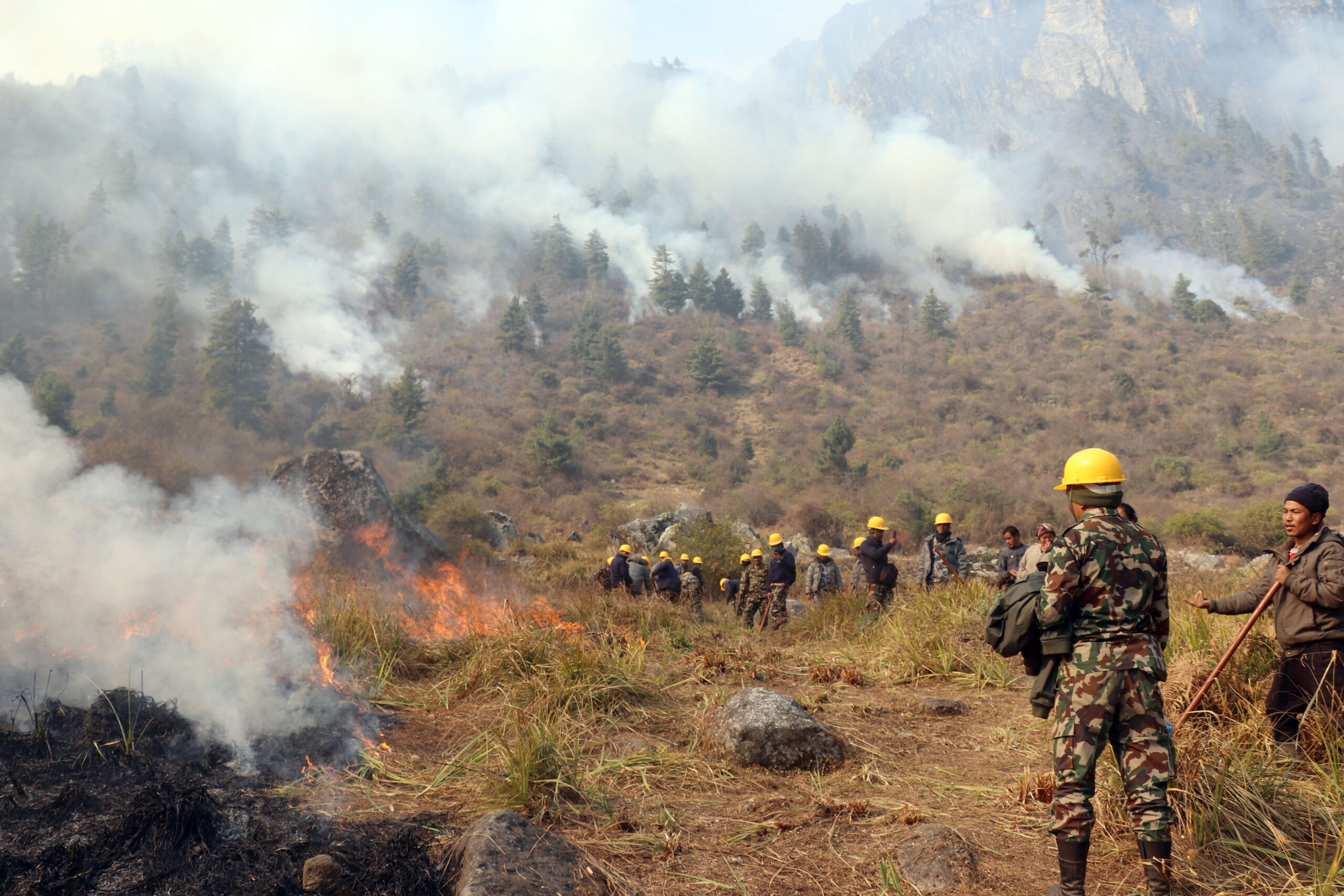
-Bhishma Raj Ojha/RSS
KATHMANDU: The Government of Nepal has signed the Glasgow Leaders’ Declaration on Forests and Land Use that ‘commits to working collectively to halt and reverse forest loss and land degradation by 2030 while delivering sustainable development and promoting an inclusive rural transformation’, and Global Coal to Clean Power Transition Statement in order to phase out coal power.
In the recently held COP-26, Nepal also signed the Letter of Intent with ‘Lowering Emissions by Accelerating Forest Finance’ to receive fiscal assistance for reducing greenhouse gas emissions through forest management in Nepal.
The Ministry of Forest and Environment said that an agreement was reached on ‘Glasgow Climate Pact’ to continue the target of limiting the global temperature rise to 1.5 degree Celsius and implementation of the Paris Agreement.
The COP-26 was held in Glasgow city of the UK from October 31 to November 12 and Prime Minister Sher Bahadur Deuba and Minister for Forest and Environment Ram Sahaya Prasad Yadav and secretaries of different ministries participated in the event.
Ministry’s Secretary Dr Pem Narayan Kandel said that the agreement held regarding the Nationally Determined Contribution (NDC) along with the target of greenhouse gas emissions by 2022 especially by the top emitters was a great achievement.
Likewise, an agreement has been made on discouraging the use of coal, the key source of greenhouse gas emission, and discouraging grants on the use of fossil fuel.
Dr Kandel said that crucial agreement was made on the implementation of Article 6 of Paris Agreement on carbon trading and Article 13 taking measures to enhance climate change education, training, public awareness, public participation and public access to information.
Chief of the Ministry’s Climate Change Division Dr Radha Wagle said that a consensus was made for contribution of $100 billion a year by the developed countries to the poor countries in fighting the climate change impacts by 2025.
Joint Secretary Dr Wagle said defining climate finance and other development assistance, the developed nations have agreed to double the adaptation finance by 2025 in line with Nepal’s view that financial balance should be maintained on climate change adaptation and mitigation. The National Adaptation Plan presented by Nepal and other countries WERE welcomed at the conference.
Meanwhile, the issues of climate damage, which have been raised by the least developed, small islands and other developing countries including Nepal, were of special importance in the discussions held during the conference.
Accordingly, the issue of preventing, minimizing and addressing such climate-related losses has been mentioned in the original decision of COP-26, the ministry said.
The Parties have agreed to prepare and implement the minutes of the Santiago Network for Climate Change Damage. It has been agreed to continue the discussion on the issue of financial management to address the losses, to reach a conclusion by 2024 and to include this issue in a more systematic way in the Collective Quantitative Finance Goal after 2025.
This year’s conference has succeeded in raising the issue of glaciers in the high mountainous region which Nepal has been raising with importance, said spokesperson and joint secretary at the Ministry of Forests Meghnath Kafle.
Nepal’s commitment and representation in the conference became more effective and visible with presentations on the eve of the Climate Change Conference on the Second Scheduled National Contribution (NDC) approved by the government at the end of 2020 and the recently approved National Adaptation Plan, long-term zero emissions strategy and national structure for climate-related damage.













